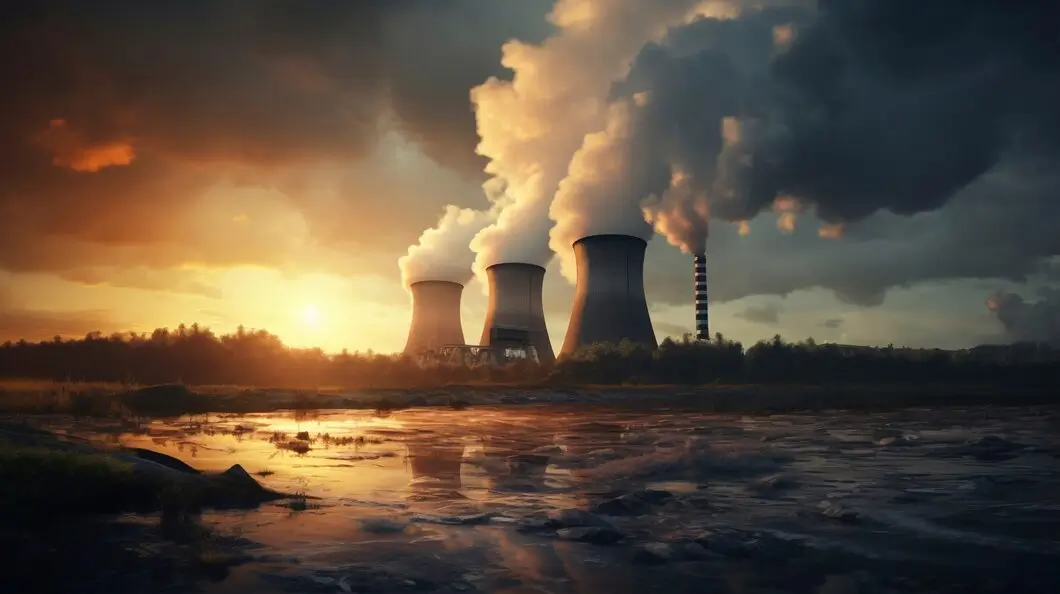The oil market has seen substantial volatility in recent months due to the escalating tensions between Israel and Iran over their nuclear aspirations. This article examines the complex link between geopolitical events and the price of crude oil, specifically looking at how concerns about a possible military response might affect oil supply throughout the world.
Rising Crude Oil Prices
Significant spikes in U.S. crude oil prices have been seen, mostly as a result of intensified tensions. Investors are keeping a careful eye on the recent price spike of more than 4%. Market panic has been triggered by concerns about possible Israeli attacks on Iranian nuclear installations or perhaps oil pipelines. Experts say the Middle East is seeing its most dangerous geopolitical climate since the Gulf War, putting oil merchants in a dangerous position.
Political Responses and Market Reactions
Much trading has taken place in the market following President Biden’s remarks on possible US backing for Israeli strikes against Iran. Without pledging to take swift action, he said, “We’re discussing that,” suggesting the gravity of the problem. Traders react to speculation and possible outcomes, which causes volatility, which is typically caused by this uncertainty. Due to its prominence in international energy markets, the United States’ signals carry more weight with investors.
Changes in political climate tend to influence market sentiment, which in turn affects oil price variations. Anxieties over supply interruptions were reflected in the significant intraday surge in West Texas Intermediate (WTI) prices that followed Biden’s remarks, which hit $73.95 per barrel.
Supply Chain Disruptions
Disruptions to the oil supply chain, especially at critical chokepoints like the Strait of Hormuz, are a cause for concern in light of the impending danger of armed war. About 20% of the world’s oil passes through this strait every day, making it an essential conduit for the transportation of oil throughout the globe. The world’s oil prices may rise if there was a military conflict.
According to experts, oil prices might skyrocket—with some estimating they could reach $200 per barrel—if Israeli strikes on Iranian oil infrastructure caused traders to price in the likelihood of outages. A worldwide economic downturn, worsening inflation and consumer expenditure, might result from this possible price surge.
OPEC+ Response
Although there is a lot at stake, OPEC+ has a lot of spare capacity that might help smooth out supply disruptions. According to Rystad Energy’s experts, this excess capacity might temporarily protect the worldwide market from disturbances. It is often believed that Saudi Arabia and the United Arab Emirates are the principal providers of this excess capacity, prepared to intervene to stabilize markets should the need arise.
But there are dangers in concentrating this capability in the Gulf states, especially in the event of a wider confrontation. In the delicate balance between member states’ individual interests and collective aspirations, any escalation has the potential to destabilize not just oil supply but possibly OPEC+ itself.
The Role of Speculators
The significance of oil market speculators in influencing price changes is significant. Speculators typically wager on price increases in response to rising geopolitical tensions, which in turn raises volatility. A self-fulfilling prophecy can result from this kind of behaviour: when people are afraid that supplies will be cut off, they buy more, which raises prices.
Many investors are keeping a careful eye on the news for any signs of a military strike in the context of the conflict between Iran and Israel. Rapid price movements based on rumours or brief pronouncements might occur due to this heightened focus, highlighting how vulnerable the present energy situation is.
Impact on Global Economies
Worldwide economies are at jeopardy due to the possibility of rising oil costs. Transportation and production expenses can rise in response to high petroleum prices, which might be borne by consumers. As the price of energy continues to climb, economies that import a lot of oil, like many in Asia and Europe, may start to feel the pinch. In addition, central banks may decide to raise interest rates in response to inflationary pressures caused by high oil prices. This has the potential to influence investment choices in different industries and dampen economic development.
Energy Transition and Market Sentiment
An intriguing side effect of the escalating tensions between Iran and Israel is their effect on the worldwide energy shift. Volatility in oil prices can help or hurt nations’ efforts to wean themselves off fossil fuels. As nations look for ways to lessen their exposure to geopolitical concerns, high oil prices may spur investment in renewable energy.
But governments may be tempted to return to relying on fossil fuels as a temporary fix if instability continues, which would make attempts to transition to a sustainable energy future more difficult. How nations manage their short-term energy demands in relation to their longer-term environmental objectives will determine the impact’s final form.
Future of Energy Markets
Energy markets are expected to maintain their volatility as the scenario unfolds. Investors face complexity and unpredictability in the complicated relationship between global events and oil prices. With traders keenly watching events in both Israel and Iran, the prospect of armed action may cause a strategic reassessment of energy assets. Also, energy markets can see some changes due to the increasing significance of renewable energy sources.
Even in the midst of global turmoil, conventional oil dependence may progressively shrink as nations diversify their energy portfolios. New investment possibilities and difficulties may arise as markets adapt to changing needs caused by this transformation. Finally, the energy markets are at a crossroads due to the continuing tensions around the nuclear facilities in Israel and Iran.
Stakeholders need to keep an eye on the ever-changing geopolitical landscape and adjust their plans accordingly to take advantage of opportunities and avoid threats. Diplomatic initiatives and the reactions of influential regional actors will determine the final result, which in turn will determine the trajectory of energy on a global scale. The importance of strategic planning and flexibility in the face of persistent geopolitical influences on energy markets is paramount. A crucial issue for both policymakers and investors, the final resolution of these tensions will impact oil prices and the overall economic environment.
FAQs on Nuclear Sites in Iran and Israel
How many nuclear sites are in Iran?
The Bushehr Nuclear Power Plant is one of many nuclear facilities in Iran; others include Natanz, Fordow, Arak, and others.
Does Iran have nuclear power?
Yes, Iran has nuclear power through the Bushehr Nuclear Power Plant, operational since 2011.
Where are the nuclear launch sites in Israel?
The Negev Nuclear Research Centre, located close to Dimona, is thought to be associated with Israel’s nuclear program, however the country has not officially acknowledged any nuclear launch sites.




